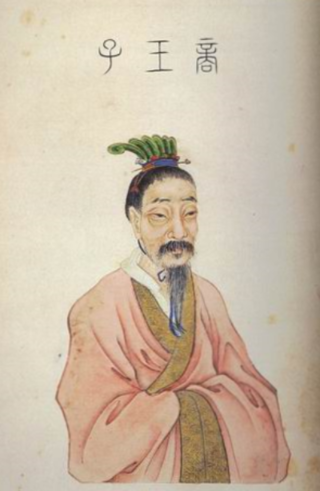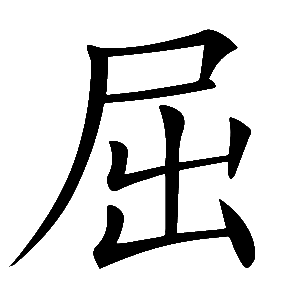
Chinese mythology is mythology that has been passed down in oral form or recorded in literature throughout the area now known as Greater China. Chinese mythology encompasses a diverse array of myths derived from regional and cultural traditions. Populated with engaging narratives featuring extraordinary individuals and beings endowed with magical powers,these stories often unfold in fantastical mythological realms or historical epochs. Similar to numerous other mythologies,Chinese mythology has historically been regarded,at least partially,as a factual record of the past.

The Dragon Boat Festival is a traditional Chinese holiday that occurs on the fifth day of the fifth month of the Chinese calendar,which corresponds to late May or early June in the Gregorian calendar. The holiday commemorates Qu Yuan who was the beloved prime minister of the southern Chinese state of Chu during the Warring States period,about 600 B.C. to 200 B.C.,and is celebrated by holding dragon boat races and eating sticky rice dumplings called zongzi,which were southern Chinese traditions. Dragon Boat Festival integrates praying for good luck and taking respite from the summer heat.

Qu Yuan was a Chinese poet and aristocrat in the State of Chu during the Warring States period. He is known for his patriotism and contributions to classical poetry and verses,especially through the poems of the Chu Ci anthology:a volume of poems attributed to or considered to be inspired by his verse writing. Together with the Shi Jing,the Chu Ci is one of the two greatest collections of ancient Chinese verse. He is also remembered in connection to the supposed origin of the Dragon Boat Festival.

Wu was a state during the Western Zhou dynasty and the Spring and Autumn period,outside the Zhou cultural sphere. It was also known as Gouwu or Gongwu from the pronunciation of the local language. Wu was located at the mouth of the Yangtze River east of the State of Chu and south of the State of Qi. Its first capital was at Meili,then Helü's City,and later moved to Gusu.

Lu Ban was a Chinese architect or master carpenter,structural engineer,and inventor,during the Zhou Dynasty. He is revered as the Chinese Deity (Patron) of builders and contractors.

After Liu Bang defeated Xiang Yu and proclaimed himself emperor of the Han dynasty,he followed the practice of Xiang Yu and enfeoffed many generals,noblemen,and imperial relatives as kings,the same title borne by the sovereigns of the Shang and Zhou dynasties and by the rulers of the Warring States. Each king had his own semi-autonomous kingdom. This was a departure from the policy of the Qin dynasty,which divided China into commanderies governed by non-hereditary governors.

The Chu Ci,variously translated as Verses of Chu,Songs of Chu,or Elegies of Chu,is an ancient anthology of Chinese poetry including works traditionally attributed mainly to Qu Yuan and Song Yu from the Warring States period,as well as a large number of works composed during the Han dynasty several centuries later. The traditional version of the Chu Ci contains 17 major sections,anthologized with its current contents by Wang Yi,a 2nd-century AD librarian who served under Emperor Shun of Han. Classical Chinese poetry prior to the Qin dynasty is largely known through the Chu Ci and the Classic of Poetry.

Wu Yun,better known by his courtesy name Zixu,was a Chinese military general and politician of the Wu kingdom in the Spring and Autumn period. Since his death,he has evolved into a model of loyalty in Chinese culture. He is the best known historical figure with the Chinese family name "Wu" (伍). All branches of the Wu clan claim that he was their "first ancestor".
Helü or Helu was king of the state of Wu from 514 to 496 BC,toward the end of the Spring and Autumn period of ancient China. His given name was Guang;he was initially known as Prince Guang.

Prince Bi Gan was a prominent Chinese figure during the Shang dynasty. He was a son of King Wen Ding,and an uncle of King Zhou,and served as the Prime Minister of the Kingdom of Shang. He was later worshipped as the God of Wealth.
Wei Ping-ao,also known as Paul Wei,was a Hong Kong-based Chinese actor who started his career in the Shaw Brothers Studio. He is best known for playing cunning interpreters in Bruce Lee's 1972 films Fist of Fury and Way of the Dragon,in which he dubbed his own voice,and also appeared in films such as Deaf Mute Heroine (1971),Hapkido (1972) and Fists of Bruce Lee (1978). He suffered from jaundice in his later years. He died on 3 December 1989 in British Hong Kong.
King Wu of Chu was the first king of the State of Chu during the Spring and Autumn period of ancient China. He was the second son of Xiao'ao,and brother of former ruler Fenmao whom he is rumored to have murdered in 740 BC in order to usurp the throne. He was also the first ruler among Zhou's vassal states to style himself "king";Chu was one of a few states where local rulers declared themselves kings during the Spring and Autumn period. Other states include Wu and Yue.

The China men's national volleyball team represents China in international volleyball competitions and friendly matches,governed by Chinese Volleyball Association. The team competed twice in the Olympic Games,finishing in eighth place at the 1984 Summer Olympics in Los Angeles,California,and fifth place in the 2008 Summer Olympics at home in Beijing. China have been consistently competing the FIVB World Championship,with a best of seventh place in both 1978 and 1982. On a continental level,China won three gold medals at the Asian Games,in 1986,1990 and 1998. China also won 3 gold medals at the Asian Championship in 1979,1997 and 1999. The team now ranks 26th in the FIVB World Rankings and the current head coach is Vital Heynen.
Han Zhuo was a mythical Chinese hero who usurped Houyi as leader of a people near the Xia in prehistoric China. He and his sons appear in a number of Chinese legends,and there are various conflicting accounts of how he died.

Qu is a Chinese surname. The Chinese family name 屈is transliterated as Wat in Cantonese Jyutping,Yale,and Hong Kong romanization. It is also transliterated as Qūin pinyin. The surname Qu (屈) is listed 124th on the famous Song dynasty book of common Chinese surnames,Hundred Family Surnames,contained in the verse 熊紀舒屈.

Penghu Shuixian Temple,is a Taoist temple in Magong,Penghu. Built in 1696 by Xue Kui (薛奎),a military officer of Penghu Navy,it mainly serves the Shuixian Zunwang,five Taoist immortals worshipped as sea gods.

Bengang Shuixian Temple is a temple located in Nangang Village,Xingang Township,Chiayi County,Taiwan. Sitting on the south shore of the Beigang River,the temple is dedicated to five water gods collectively known as Shuixian Zunwang.

Yin Jiao is a Taoist deity of the star Taisui or of Jupiter,also named Taisui Xingjun,Taisaishin,Yin Yuanshuai and Yin Tianjun. In Investiture of the Gods,he is the first son of the cruel King Zhou of Shang and the crown prince of the dynasty. Although King Zhou is a historical figure,Yin Jiao and Yin Hong are fictional characters. After being defeated by forces of Jiang Ziya,he is later enshrined by him as the god of Tai Sui. In a Ming dynasty work The Complete Work In Search of the Origins of the Deities of the Three Schools,however,he sides with King Wu and kills the killer of his mother,Daji.




















